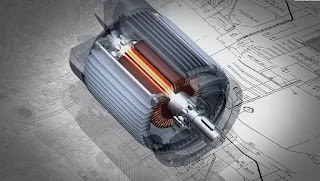BY AFZAL YOUSAF
Lithium ion batteries are widely used to power electric vehicles. There are different types of Lithium ion batteries based on the chemical composition and type of element used in it apart from lithium. Lithium is the active material in it and these batteries are popular as lithium ion batteries.
In this article you can read about different types of Lithium ion batteries used in electric vehicles.
Types of Li ion batteries are:-
- Lithium ferrophosphate.
- Lithium manganese oxide.
- Lithium cobalt oxide.
- Lithium Titanate.
- Lithium nickel manganese cobalt oxide.
Lithium Ferrous phosphate (LFP)
Lithium iron phosphate battery (LiFePO4 battery) or LFP battery is the most commonly used lithium battery in electric vehicles. In this battery chemistry, LiFePO4 is used as cathode material and graphitic carbon electrode with a metallic backing as the anode. This type have lower operating voltage around 3.2 V.
Due to its properties like High performance, long term stability, Low cost, low toxicity, longer life, it is used in electric vehicles. Also reduces the risk of overheating and fire.
Specifications
- Nominal cell voltage- 3.2 V
- Energy density- 90 to 160 Wh/kg
- Life cycle- 2000 to 12000
- Specific power- 200 W/kg
- Self discharge rate- <5%/month
Lithium manganese oxide (LMO)Lithium ion manganese oxide battery (LMO) is a type that uses manganese dioxide (Mno2) as the cathode material and use graphite as anode. Cathodes based on manganese-oxide components are earth-abundant, inexpensive, non-toxic, and provide better thermal stability. Low internal resistance enables fast charging and high current discharging.
Specifications
- Nominal cell voltage- 3.8 V
- Energy density- 100 to 150 Wh/kg
- Life cycle- 300 to 1000
- Specific power- 250 to 340 W/kg
- Self discharge rate- <5%/month
Lithium cobalt oxide (LCO)Lithium cobalt oxide uses LiCoO2 as cathode and graphite carbon anode. It is sometimes called lithium cobaltate and lithium cobaltite. The cathode has a layered structure and during discharge, lithium ions move from the anode to the cathode and the flow reverses on charge. The drawback of Li-cobalt is a relatively short life span, low thermal stability and limited load capabilities (specific power).
Specifications
- Nominal cell voltage- 3.6 V
- Energy density- 150 to 190 Wh/kg
- Life cycle- 500 to 1000
- Specific power- 250 to 340 W/kg
- Self discharge rate- <5%/month
Lithium Titanate (LTO)Lithium Titanate is another type of lithium battery, which has an advantage of fast charging than other lithium batteries. But its energy density is lower compared to others. Li-Titanate replaces the graphite in the anode of a typical lithium-ion battery and the material forms into a spinel structure. The cathode can be lithium manganese oxide or NMC. Li-Titanate has a nominal cell voltage of 2.4 V, can be fast charged and delivers a high discharge current of 10C, or 10 times the rated capacity.
Specifications
- Nominal cell voltage- 2.4 V
- Energy density- 50 to 80 Wh/kg
- Life cycle- 3000 to 7000
- Self discharge rate- <5%/month
Lithium Nickel manganese cobalt oxide (NMC)Lithium nickel manganese cobalt oxide is one of the popular batteries used especially in heavier electric vehicles like electric buses and trucks. It has a cathode combination of nickel-manganese-cobalt and graphite carbon anode.
Advantage of NMC lies in combining nickel and manganese. Nickel is known for its high specific energy but poor stability; manganese has the benefit of forming a spinel structure to achieve low internal resistance but offers a low specific energy. Combining the metals enhances each other strengths.
Specifications
- Nominal cell voltage- 3.6 V
- Energy density- 150 to 220 Wh/kg
- Life cycle- 1000 to 2000
- Specific power- 250 to 340 W/kg
- Self discharge rate- <5%/month

Share your thoughts and join the conversation. Keep Reading.







In hybrid electric vehicles which type of battery is suitable?
ReplyDeleteIn hybrid EVs also we can use all types of batteries used in fully electric vehicles. Usually in lithium ions, lithium ferrophosphate (LFP) batteries are used. Nickel metal hydride batteries are also used. It depends on the type of application and vehicle.
Delete